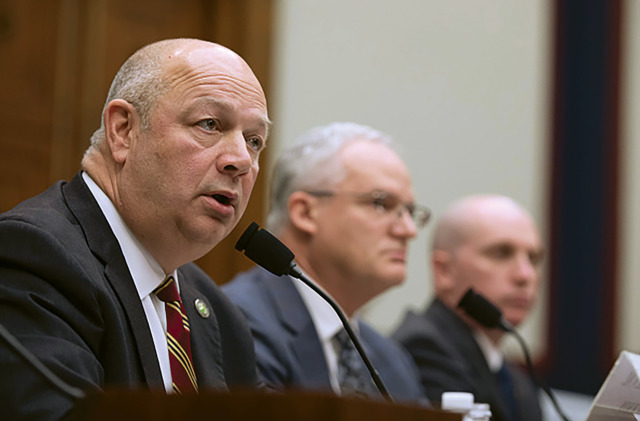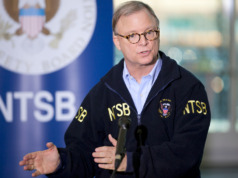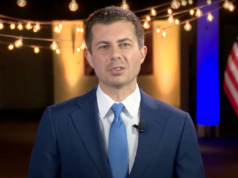
FAA Administrator Stephen Dickson appeared before the full House Transportation & Infrastructure Committee Dec. 11 to respond to wide-ranging questions about the certification of the Boeing 737 MAX and its calamitous entry into airline service. Observing Dickson, on the job at FAA for only four months by mid-December, had to be reassuring for everyone in the aviation industry — and the traveling public as well.
Dickson displayed a remarkable grasp of technical details and articulated plans for a robust and wide-ranging testing program before airlines can resume 737 MAX flights. He answered the committee’s questions politely and confidently, demonstrating he has immersed himself in determining what went wrong and how FAA’s credibility can be restored.
Going forward, Dickson told the committee, FAA officials “are not delegating anything” to Boeing and promised, “I’m not going to sign off [on returning the 737 MAX to the skies] until I fly it myself.” Having logged thousands of hours piloting both military and commercial aircraft, and holding type ratings in four Boeing airliners including the 737, Dickson’s practical experience demands respect. His many years in senior operations and safety positions at Delta are another asset.
Dickson also told committee members he had “expressed my disappointment to Boeing management” and told company officials, “they need to be more transparent.”
According to a subsequent report in The Wall Street Journal, Dickson and other senior FAA officials met with Boeing’s then-CEO Dennis Muilenburg and the new head of Boeing’s Commercial Aircraft Division on Dec. 12, the day after the congressional hearing.
The purpose of that meeting was to bluntly inform Boeing’s top management that FAA would not be pressured into meeting the manufacturer’s overly optimistic public projections about when the 737 MAX might return to service. The message was clear – the agency will sign off on the 737 MAX only when officials are completely satisfied all problems have been identified and fixed, not before.
During the hearing, Dickson said agency certification officials have a number of milestones yet to complete. Before commercial flights resume, he also wants both U.S.-trained pilots and others from different nations around the world to conduct familiarization and training flights.
The new FAA Administrator’s strong stance is necessary and welcome. The agency’s reputation took a huge hit in the aftermath of the two fatal 737 MAX crashes in Indonesia and Ethiopia. Dickson needs to reassert FAA’s authority, and put type certificate applicants on notice to be fully forthcoming instead of attempting to hide or gloss over potential problems.
So what does all this mean for business aviation manufacturers, buyers, and operators? It could result in a slightly more deliberate pace by FAA officials in issuing new certificates, but probably not significant delays. It appears the problems revealed in the 737 MAX certification primarily involved actions by Boeing officials and their interaction with employees of FAA’s Seattle Aircraft Certification Office (ACO), not a systemic FAA problem.
Most business jet type and production certificates are overseen and administered by ACOs in Atlanta, Boston, Chicago, Denver, Los Angeles and Wichita, depending on where the manufacturer is headquartered.
While there is always type certification activity underway, Bombardier, Cessna, Dassault, Embraer, and Gulfstream brought a number of new models to market in the past few years so there is currently not a big backlog of pending applications.
The T&I Committee has spent a lot of time seeking information on the 737 MAX and will no doubt issue a lengthy report. But we can only hope it does not pursue some overly prescriptive legislative “remedies” to address the problems uncovered. Congress has taken that approach following past aviation tragedies; history shows legislative mandates dealing with complex technical issues usually lead to regrettable, unintended consequences.
The new FAA Administrator appears to know what he’s doing. Congress should make sure he has sufficient resources and resist encumbering him. BAA
David Collogan has covered aviation in Washington, DC for more than four decades. This award-wining journalist is known as one of the most knowledgeable, balanced, wary, and trusted journalists in the aviation community.




